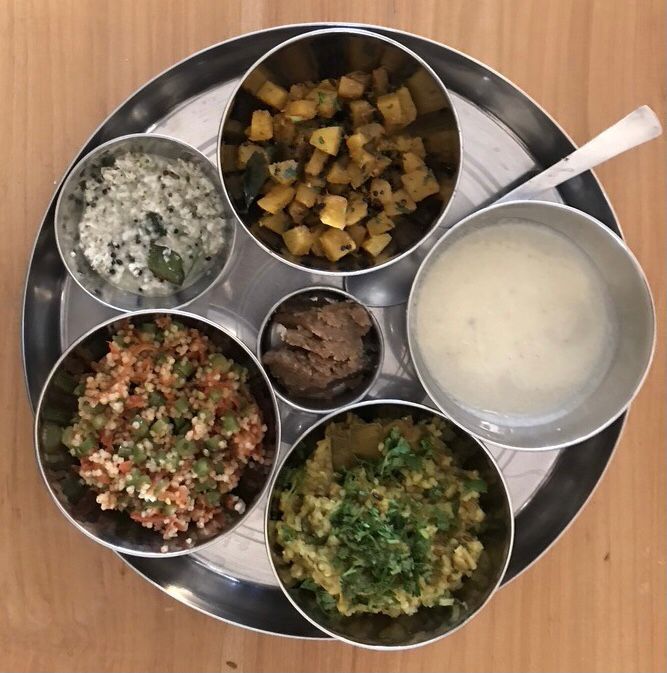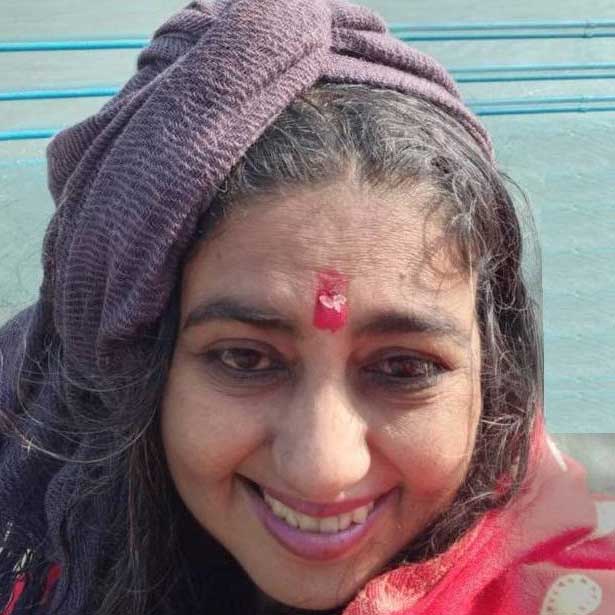You are what you eat
It is often said that you are what you eat. This certainly holds true from the Ayurvedic point of view, hence the stress on diet and its quality. However, Ayurveda teaches us that are we not just what we eat but also what we consume in the broadest sense. We are constantly consuming through our five senses and this inflow of sensory impressions shapes and moulds the mind as much as the food we eat. In modern culture, we do not give this type of consumption the importance it merits or even fully recognise the potential impact on our health and wellbeing.
The mind, like the body is constantly turning over and being renewed. Ayurveda regards the mind as a subtle form of matter which is shaped by the food we consume, in that the subtle essence of the food forms the mind. It is also being influenced by the incoming Pranic flow through the senses. We know that whatever we experience, colours our thoughts and emotions, but we are often unaware of the subtle effect that everything that we take in has on our state of mind.
Everything in this manifest universe has its specific qualities and properties. There are three inherent aspects or qualities of nature known as the three Gunas – Sattwa, Rajas and Tamas. These are present throughout nature and are likewise present in our minds. The mind is formed from Sattwa and this is therefore its essential nature. The mind is disturbed in its functioning by Rajas and Tamas which are therefore known as the Doshas of the mind. Rajas activates the mind and Tamas dulls it. It is these three qualities that continually exert a subtle influence on us. They are present in all phenomena and in every human being to varying degrees. They are in constant flux and at one time one may predominate and at another time another may predominate.
The Sattwic quality promotes harmony, calm, clarity, purity and stillness in the mind. The Rajasic quality is exciting, stimulating and promotes activity, the passions and ambition. The Tamasic quality is dulling, clouding and promotes somnolence and inertia.
Let us start with the diet. Each item of food has its specific nature and associated qualities. All that we consume is made of these three gunas in varying degrees. Sattwic food broadly speaking is freshly prepared wholesome vegetarian food which has a calming and pleasing effect on the mind. Many fresh vegetables and fruit are Sattwic in nature. Fresh milk, ghee, whole grain pulses, nuts, seeds are also some examples of Sattwic foods. Rajasic food is stimulating, tasty and spicy food which excites the mind and makes it active. Examples are meat, fish, eggs, garlic, chillies, pickles, caffeine, chocolate and so on. Tamasic food is dulling in its effect. Stale food, processed food, meat, mushrooms, fermented food like bread, hard cheeses, vinegar and alcohol are a few examples.
And when we turn to the sensory diet the same principle applies. Sensory food has its properties and thereby exerts its effect. What we consume through our senses also has Sattwic, Rajasic or Tamasic qualities.
Broadly speaking Sattwic sensory impressions are harmonious, clear, uplifting and calming. whether these be sounds, sights, fragrances or touch. A Sattwic environment is clean, light, clear and harmonious. The colours are gentle pastel colours. Music and chants which are harmonious and peaceful generally have a Sattwic effect.
Religious/spiritual music and chants and other spiritual activities generally have a Sattwic effect on the mind. Not only this but the mind is nourished and uplifted with positive thoughts and tendencies.
Rajasic sensory impressions activate and stimulate the passions. This includes sounds, music, images and odours that stimulate and excite the mind. Watching thrillers, passionate dramas, listening to rock music or other exciting music will all activate the mind. Bright colours have a Rajasic effect.
Tamasic impressions have a negative and clouding effect. These are dark images, negativity, discordant sounds, bad language, unpleasant smells. Negativity in the content of what is seen or heard will have a dulling or agitating effect. An environment which is dark, dull and neglected will have a Tamasic effect.
Enhancing Sattwa may accord a certain mental peace and stability. Rajas has a role in achieving goals and being dynamic in society. However, in excess it can cause anxiety, restlessness and agitation. Tamas is also important in inducing sleep, without which we cannot function. However, in excess it can cause heaviness, lethargy, dullness and feelings of depression.
Our five senses are constantly consuming impressions, and these are a form of diet which shapes the mind. Everything we do has an influence on us and shapes what we become. Hence the importance of our sensory diet, our environment and our company. As Rajas and Tamas are the qualities which when in excess are said to cause disturbance of the mind, these need to be kept in check.
All three Gunas are essential in nature but strong Sattwa is helpful for a clear and calm state of mind. Mind being the subtle part of the body is influenced by everything that the body takes in through its diet and senses. And it therefore follows that you are indeed what you eat! If we are what we consume in this very broad sense, then this gives us a degree of control in shaping the way we want to be and to take charge of the forces that govern us.








